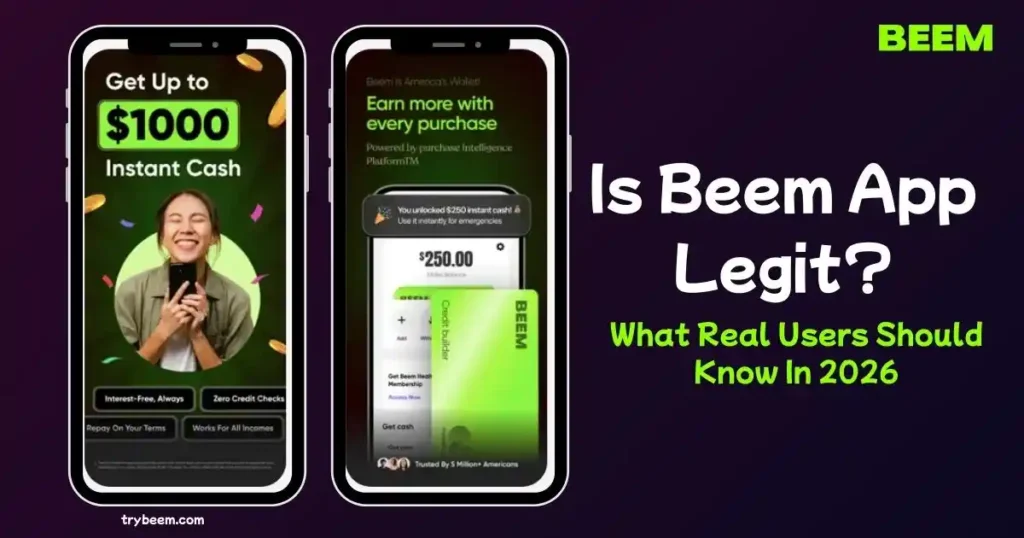Financial independence doesn’t start in adulthood—it’s built early, through small decisions that shape long-term habits. But most teens today aren’t taught how to budget, plan, or handle financial stress until it’s too late.
That’s why it makes sense to teach teens money skills with Beem Pass. It’s not just a tool—it’s a complete system that offers budgeting features, spending visibility, and access to emergency cash (when eligible), all within a safe, private environment. Whether they’re managing an allowance, a part-time job, or learning to handle unexpected expenses, Beem Pass helps teens make smart choices with confidence.
Why Traditional Allowances Aren’t Teaching Real Money Skills
Parents have been giving their kids weekly allowances for years to teach them how to handle money—giving kids $10 or $20 for doing chores, being good, or just as a weekly allowance is a terrific idea. But in today’s complicated financial environment, standard allowances aren’t enough. Why? They don’t teach how to handle money; they teach how to get money. Teenagers often spend freely and don’t prepare ahead when they know money will come in every Friday. This makes people think about money in a reactive way instead of a proactive way. Teenagers get used to begging for money when needed instead of figuring out how to use what they already have. Instead of “How do I make this last?” the message becomes “If I need more, I’ll just ask.”
Also, formal education has its limits. Many institutions teach budgeting, saving, or compound interest in theory, but they don’t allow students to use what they’ve learned in real life. You can’t learn to swim by reading a book. Today’s teens need to learn about money by doing things with it. They need tools that respond to real-life situations, give them feedback, and look like the financial systems they will use as adults. They don’t need further lectures. They need to practice. Beem Pass comes in here.
Beem Pass: The Modern Parent’s Financial Teaching Tool
Beem Pass is a new way to handle family finances. It’s not only a digital wallet or an allowance. It’s a complete set of tools that lets kids use financial tools without risking the family’s money. Beem is where up to five family members may learn, be open, and develop their money.
Picture your teen having a digital account with emergency backup, budgeting categories, credit awareness tools, and transaction tracking, all with built-in parental assistance. That’s what Beem does.
More significantly, it shows the difference between donating money and helping someone learn how to handle it. Beem lets teens handle money while parents still set restrictions, boundaries, and rules. Beem Pass gives teens their own financial sandbox, where they may study without risking the family’s money. This differs from debit cards tied to a parent’s bank account. Why do teens like tools more than rules? Because tools let them make decisions. Tools make you feel powerful, whereas rules frequently make you feel limited and controlled. Teens are much more likely to become involved, take the lead, and learn by doing when given a system instead of a sermon.
Essential Money Skills Teens Learn Through Beem
Emergency Fund Management with Everdraft
One of the most crucial things you can learn about money is the distinction between a need and a want. The Everdraft function of Beem Pass lets minors get emergency cash with no interest, and it is managed with supervision. This makes the idea of an “emergency fund” something tangible that people can learn from.
Teens can use Everdraft when needed instead of borrowing money from their parents, which can cause problems. Since it’s tracked, these times are opportunities to learn.
For example, if a youngster utilises Everdraft to buy a last-minute concert ticket, that becomes a conversation: “Was that an emergency or a decision you could have planned for?” As kids age, they learn to distinguish between real financial crises, such as unexpected bills for a shattered phone screen, medical co-pays, urgent school needs, and unnecessary spending.
These events change how we think in the long term. Teens learn that borrowing money is okay, but not if they don’t have a plan. And kids learn how to stay cool when things go wrong by keeping an emergency fund.
Real-Time Budgeting and Spending Awareness
People often learn how to budget after the fact. At the end of the month, you check your bank statement and see that you spent too much. But Beem changes the game by allowing you to budget in real time. Teens can see how much they’ve spent on meals, entertainment, transportation, and other things, so they can make choices before they spend too much. This makes it a habit to check your balance before you buy something, not after. It also teaches the most crucial part of budgeting: making choices. If you don’t have much money left for entertainment, do you forego the movie this weekend or move money from another category?
Teenagers start to understand where their money goes, and they typically find that small purchases like a $5 coffee or a $3 game update use up their cash faster than big purchases. These little things you do daily make you financially responsible for the rest of your life.
And since Beem makes this process easy to see and understand, it doesn’t seem like homework; it feels like you’re in charge.
Credit Score Education That Matters
One of the most obscure but vital components of adult financial life is credit scores. Most young folks don’t get it until they get turned down for their first apartment or offered a very high interest rate loan. Beem makes credit less of a mystery by showing how tiny financial decisions now might affect prospects. Beem doesn’t give out formal credit, but it does have tools that mimic the process of creating credit, like keeping track of habits, learning how important it is to make payments on time, and comprehending the long-term effects of short-term choices.
Teenagers realise that their destiny isn’t set by one huge choice, but by the decisions they make over time. Using Beem’s credit education tools, pupils get a head start on one of the most confusing elements of personal finance as they enter adulthood.
Teaching Moments That Stick: Teach Teens Money Skills with Beem Pass
The Part-Time Job Scenario
Teenagers can make money for the first time by getting a part-time job. The inconsistent income can be hard to deal with, whether they work retail on the weekends or take on freelancing jobs. Beem Pass has an Early Pay function that lets teens unlock their earned income, like getting a pay advance in the real world. This isn’t just fun; it teaches you how to time your income flow.
A teenager might make $200 this week and $90 next week. They learn how to make their money last, plan for times when they don’t have enough, and understand that life doesn’t always go according to plan with Beem. One of adults’ most crucial money skills is budgeting for unpredictable income, and teens may learn this ability early on.
The College Prep Reality Check
Going to college is a significant change for our finances. Even if a child has scholarships or family assistance, the unexpected need to buy books, supplies, clothes, or even pay for an Uber ride home can throw them off if they haven’t learned how to deal with it.
Beem helps parents help their kids while slowly pulling back. Teenagers can keep track of how they spend the money set aside for school. They feel the effects if they run out of money early, but they feel proud when they budget wisely. College prep becomes a time to be financially free instead of being in a financial crisis.
The First Car Experience
Buying a car is a big deal. Many kids (and parents) are surprised by the real expense of owning a car, which includes gas, maintenance, registration, and insurance.
Families can work together to make a budget that covers these fees with Beem. Teenagers start to get that owning something isn’t a one-time thing; it’s something they have to do all the time.
They learn this model over time. Are you buying a laptop? It’s better to plan for software and fixes. Are you moving into an apartment? Don’t forget about utilities. Beem shows them the complete cost of ownership, not just the price they paid.
Setting Boundaries While Building Independence
Many parents fear losing control when giving their teenagers money and tools. Beem fixes this by being open without being intrusive.
Parents may establish restrictions on categories, get warnings when their kids spend too much money, and even block access if necessary. But they don’t have to say yes to every buy. This balance lets people develop and be independent while respecting rules.
Teenagers learn how to solve difficulties when they have boundaries. They have to make genuine choices: Should I spend $30 on fast food or save enough for the performance next week? Beem doesn’t get rid of faults; it puts them in context. That framing makes every mistake a lesson instead of a problem.
Beem helps kids smoothly transition to complete independence by the time they’re ready for college or a job by slowly diminishing supervision as they age.
Getting Started: Your Family’s Beem Pass Strategy
Setting Up Success
Talk about money first before giving someone access. What does it mean for your family to be financially responsible? What are the limits? What goals do you wish to work toward together? Do you want your teen to save money for emergencies? Are you saving up for a trip this summer? How do you handle money from a part-time job?
Beem becomes a parenting tool, not just a platform, when everyone knows what they want and works toward the same goals. You and your teen must make financial decisions together, which will help build trust.
Monitoring Progress Without Invading Privacy
Beem respects teens’ desire for independence. Instead of worrying about every dollar spent, think about your behaviour. Look at the trends: Is spending constant or all over the place? Is saving always the same? Are they staying inside the bounds of their category?
When teens ask for help, use the chance to teach them something. If they run out of money early, ask them what occurred. Instead of giving them a top-down order, help them find a solution. Most importantly, celebrate your successes. Positive reinforcement helps you remember what you’ve learned, whether reaching a savings goal or budgeting well for a month.
Why This Beats Traditional Financial Education
A lot of traditional financial education discusses situations that aren’t genuine and have no actual stakes. Beem gives teenagers fundamental tools and real punishments, but their family is there to help them. Teenagers sense it when they spend too much. They own their accomplishment when they save and do well. This emotional link to money decisions is where real learning starts.
Feedback right away is constructive. Teens know the results of their choices the same day, so they don’t have to wait for a report card. This helps people feel more confident and assertive with money faster than lectures ever could. Beem says failing isn’t the end; it’s a chance to learn. And that lesson is worth the money.
Conclusion: Raising Financially Capable Adults
Your goal isn’t to raise a youngster who never makes a mistake with money. It’s to raise a young person who knows how to get back on their feet, adapt, and keep progressing. Beem Pass is more than just a digital tool; it’s a way of thinking about hands-on financial education. It fills the space between dependence and independence. It gives students the chance to experiment, the tools to handle things, and the help they need to grow.
The sooner your child starts using Beem, the sooner they will learn skills that will help them for the rest of their lives, like handling rent, credit cards, medical costs, and long-term savings goals. Don’t only give advice; start teaching them about money by having them do things. Begin with Beem Pass. Start using Beem Pass today to help your adolescents become confident, capable, and financially savvy, one money moment at a time. Download the app.















































